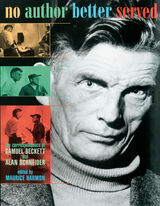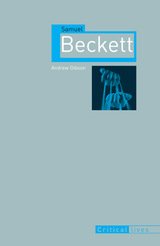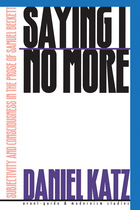
For Alan Schneider, directing Endgame, Samuel Beckett lays out the play’s philosophy, then adds: “Don’t mention any of this to your actors!”
He claimed he couldn’t talk about his work, but Beckett proves remarkably forthcoming in these pages, which document the thirty-year working relationship between the playwright and his principal producer in the United States. The correspondence between Beckett and Schneider offers an unparalleled picture of the art and craft of theater in the hands of two masters. It is also an endlessly enlightening look into the playwright’s ideas and methods, his remarks a virtual crib sheet for his brilliant, eccentric plays.
Alan Schneider premiered five of Beckett’s plays in the United States, including Waiting for Godot, Krapp’s Last Tape, and Endgame, and directed a number of revivals. Preparing for each new production, the two wrote extensive letters—about intended tone, conception of characters, irony and verbal echoes, staging details for scenes, delivery of individual lines. From such details a remarkable sense of the playwright’s vision emerges, as well as a feel for the director’s task. Of Godot, Beckett wrote to Schneider, “I feel my monster is in safe keeping.” His confidence in the director, and Schneider’s persistent probing for a surer understanding of each play, have produced a marvelous resource: a detailed map of Beckett’s work in conception and in production.
The correspondence starts in December 1955, shortly after their first meeting, and continues to Schneider’s accidental death in March 1984 (when crossing a street to mail a letter to Beckett). The 500 letters capture the world of theater as well as the personalities of their authors. Maurice Harmon’s thorough notes provide a helpful guide to people and events mentioned throughout.

Writer Samuel Beckett (1906–89) is known for depicting a world of abject misery, failure, and absurdity in his many plays, novels, short stories, and poetry. Yet the despair in his work is never absolute, instead it is intertwined with black humor and an indomitable will to endure––characteristics best embodied by his most famous characters, Vladimir and Estragon, in the play Waiting for Godot. Beckett himself was a supremely modern, minimalist writer who deeply distrusted biographies and resisted letting himself be pigeonholed by easy interpretation or single definition. Andrew Gibson’s accessible critical biography overcomes Beckett’s reticence and carefully considers the writer’s work in relation to the historical circumstances of his life.
In Samuel Beckett, Gibson tracks Beckett from Ireland after independence to Paris in the late 1920s, from London in the ’30s to Nazi Germany and Vichy France, and finally through the cold war to the fall of communism in the late ’80s. Gibson narrates the progression of Beckett’s life as a writer—from a student in Ireland to the 1969 Nobel Prize winner for literature—through chapters that examine individual historical events and the works that grew out of those experiences. A notoriously private figure, Beckett sought refuge from life in his work, where he expressed his disdain for the suffering and unnecessary absurdity of much that he witnessed.
This concise and engaging biography provides an essential understanding of Beckett's work in response to many of the most significant events of the past century.

READERS
Browse our collection.
PUBLISHERS
See BiblioVault's publisher services.
STUDENT SERVICES
Files for college accessibility offices.
UChicago Accessibility Resources
home | accessibility | search | about | contact us
BiblioVault ® 2001 - 2024
The University of Chicago Press









